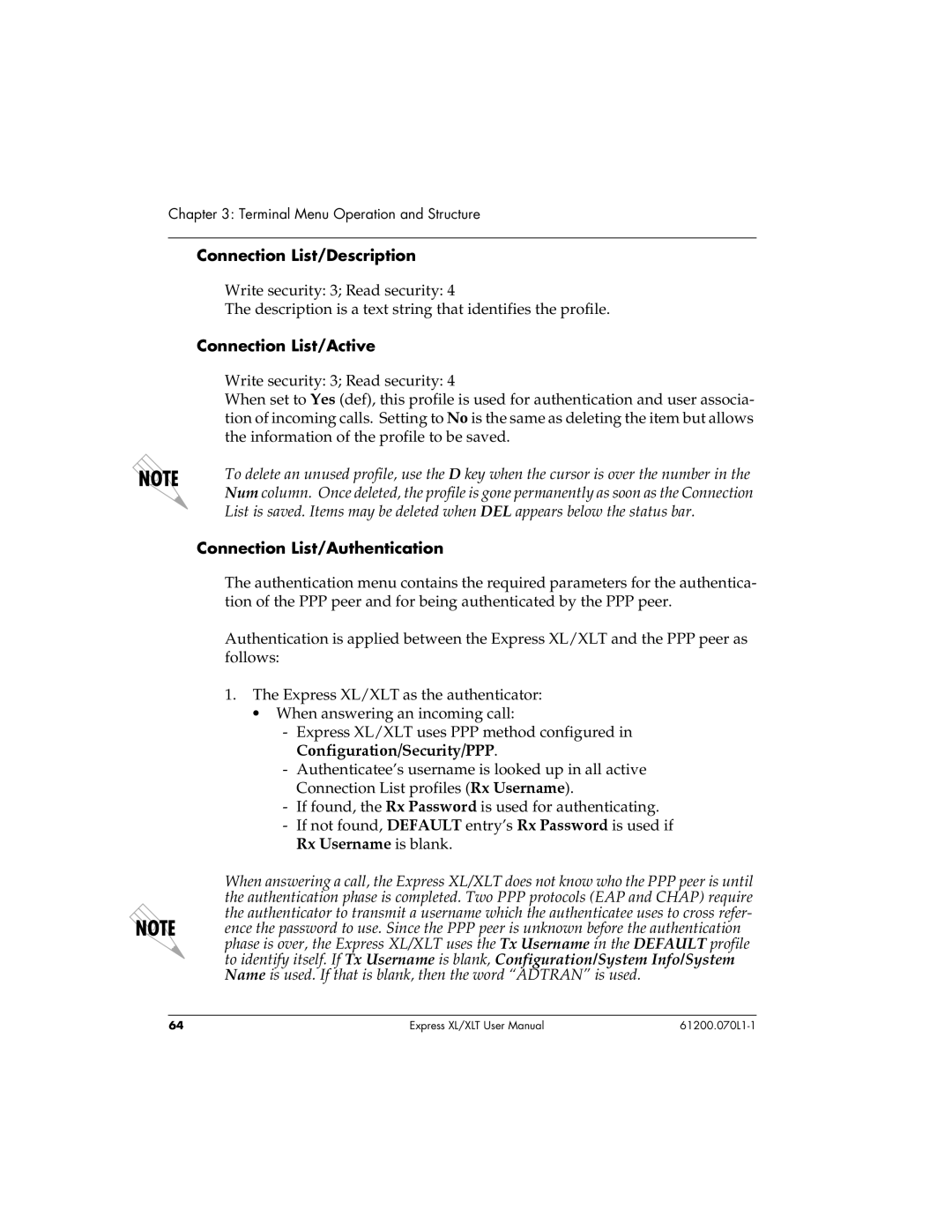
Chapter 3: Terminal Menu Operation and Structure
Connection List/Description
Write security: 3; Read security: 4
The description is a text string that identifies the profile.
Connection List/Active
Write security: 3; Read security: 4
When set to Yes (def), this profile is used for authentication and user associa- tion of incoming calls. Setting to No is the same as deleting the item but allows the information of the profile to be saved.
To delete an unused profile, use the D key when the cursor is over the number in the Num column. Once deleted, the profile is gone permanently as soon as the Connection List is saved. Items may be deleted when DEL appears below the status bar.
Connection List/Authentication
The authentication menu contains the required parameters for the authentica- tion of the PPP peer and for being authenticated by the PPP peer.
Authentication is applied between the Express XL/XLT and the PPP peer as follows:
1.The Express XL/XLT as the authenticator:
•When answering an incoming call:
-Express XL/XLT uses PPP method configured in
Configuration/Security/PPP.
-Authenticatee’s username is looked up in all active Connection List profiles (Rx Username).
-If found, the Rx Password is used for authenticating.
-If not found, DEFAULT entry’s Rx Password is used if
Rx Username is blank.
When answering a call, the Express XL/XLT does not know who the PPP peer is until the authentication phase is completed. Two PPP protocols (EAP and CHAP) require the authenticator to transmit a username which the authenticatee uses to cross refer- ence the password to use. Since the PPP peer is unknown before the authentication phase is over, the Express XL/XLT uses the Tx Username in the DEFAULT profile to identify itself. If Tx Username is blank, Configuration/System Info/System Name is used. If that is blank, then the word “ADTRAN” is used.
64 | Express XL/XLT User Manual |
